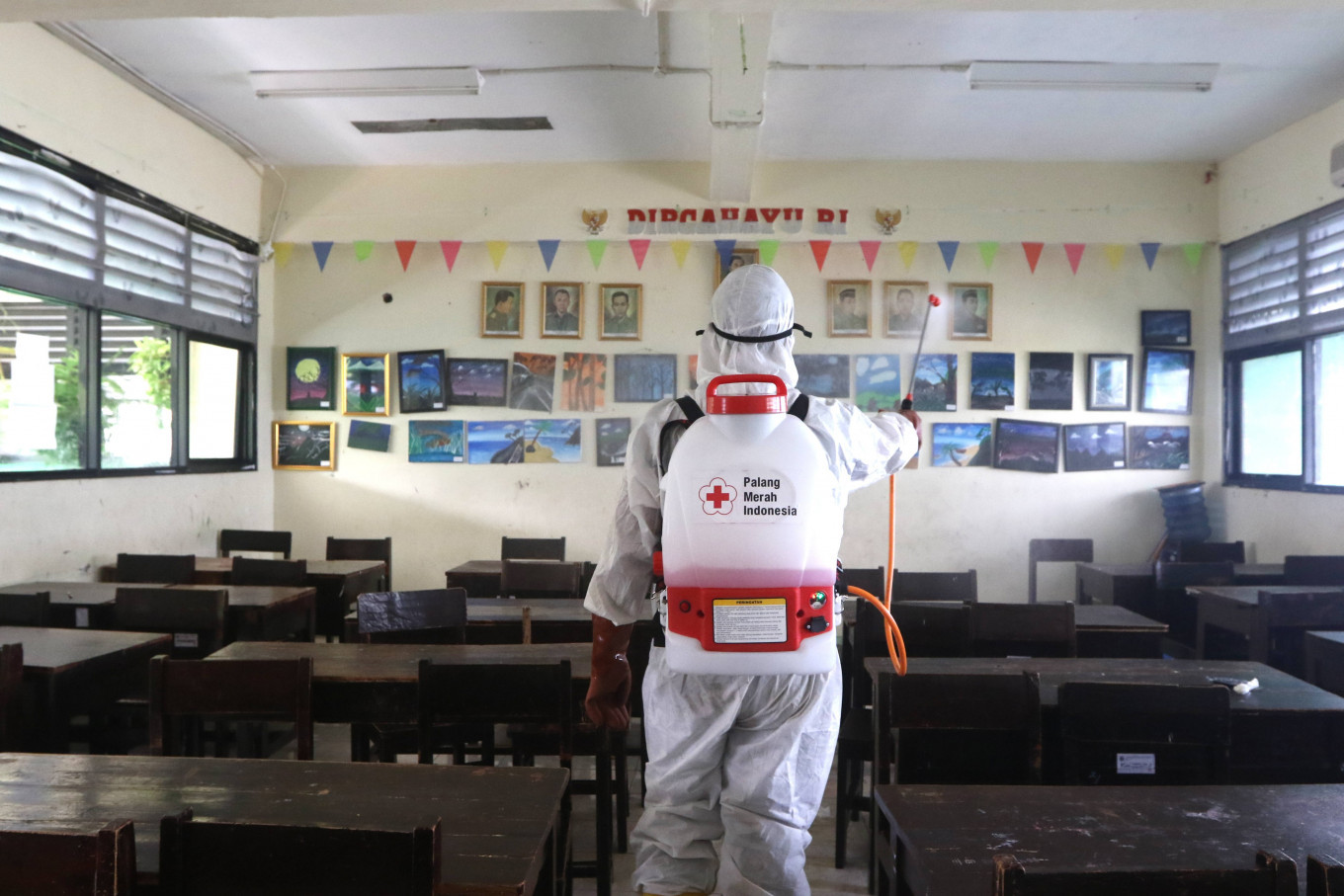Popular Reads
Top Results
Can't find what you're looking for?
View all search resultsPopular Reads
Top Results
Can't find what you're looking for?
View all search resultsChildhood learning works best in person, UNICEF committee rep says
According to UNICEF, the pandemic has seen over 60 million students in the country temporarily suspend their studies.
Change text size
Gift Premium Articles
to Anyone
The global COVID-19 pandemic has disrupted school activities and affected children’s education in unprecedented ways.
In Indonesia, the government has closed off school buildings since March, forcing classrooms to go virtual. According to UNICEF, the pandemic has seen over 60 million students in the country temporarily suspend their studies.
Although online learning is considered the best available approach to educating children while also protecting them from the virus, UNICEF COVID-19 management committee representative Arie Rukmantara said that children needed to be physically present in the classroom for effective learning.
Arie said during a discussion on Wednesday that children were missing out on learning activities by only studying online, where classes emphasized cognitive education.
At schools, he said, nutritional support, School Children Immunization Month (BIAS) and physical education were important in developing a child’s health.
He added that Indonesia had also signed the Convention on the Rights of Child, which stated that children had the right to obtain a quality education.
“It’s important to think about schools reopening with strict health and safety protocols,” he said as quoted by antaranews.com.
Read also: Tips for passing school at home with flying colors
The government released a joint ministerial decree on Friday, allowing children to return to campuses starting in January next year.
The decree gives local administrations, schools and parents the power to decide whether their schools should reopen for in-classroom learning regardless of the risk of COVID-19 infection in their region. This includes high-risk regions, also known as red zones. It is a major departure from the previous school reopening policy set out in June that only allowed schools in low-risk areas to reopen.
Education and Culture Minister Nadiem Makarim said the decision to reopen schools was based on a mutual agreement involving local administrations and schools and their committees.
“School committees represent parents. The key lies in the parents’ hands,” he said in a statement, adding that schools would not reopen if the committees did not allow it.
Arie said that in order to reopen, schools needed to work together with other institutions to provide a safe environment for children and protect them from COVID-19 transmission.
“It means the municipality or regency [administration] has to work together with schools if they want children to return to them,” he said.
Arie also urged parents to comply with the “3M health protocols” of menggunakan masker (mask-wearing), mencuci tangan (hand-washing) and menjaga jarak (social distancing). (jes)
Editor’s note: This article is part of a public campaign by the COVID-19 task force to raise people’s awareness about the pandemic.










